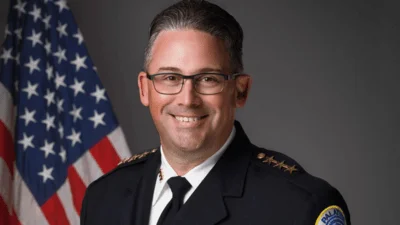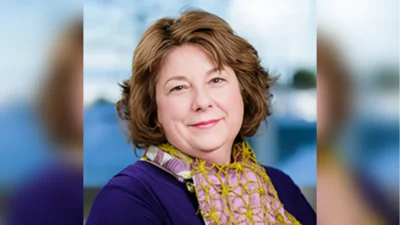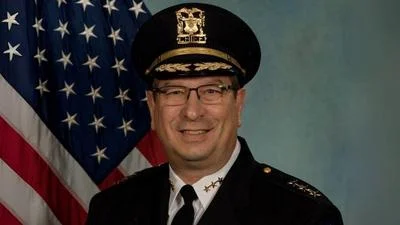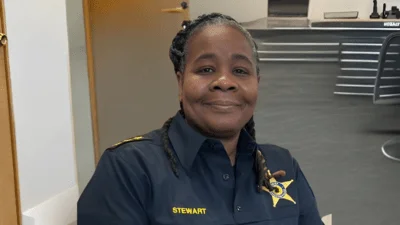Village of Northbrook Board of Trustees Committee of the Whole met Jan. 14.
Here is the minutes provided by the committee:
A LITE DINNER WILL BE PROVIDED
1. ROLL CALL
| Attendee Name | Title | Status | Arrived |
| Sandra Frum | Village President | Present | |
| Kathryn Ciesla | Trustee | Present | |
| Bob Israel | Trustee | Present | |
| Muriel Collison | Trustee | Present | |
| Heather Ross | Trustee | Present | |
| Johannah Hebl | Trustee | Present | |
| Jason Han | Trustee | Present |
A. Board of Trustees - Special Committee of the Whole - Dec 3, 2019 6:30 PM
RESULT: ACCEPTED [UNANIMOUS]
MOVER: Kathryn Ciesla, Trustee
SECONDER: Bob Israel, Trustee
AYES: Frum, Ciesla, Israel, Ross, Hebl
ABSENT: Collison
B. Board of Trustees - Special Committee of the Whole - Dec 10, 2019 6:00 PM
RESULT: ACCEPTED [UNANIMOUS]
MOVER: Kathryn Ciesla, Trustee
SECONDER: Bob Israel, Trustee
AYES: Frum, Ciesla, Israel, Ross, Hebl
ABSENT: Collison
3. PUBLIC COMMENT TIME
John Albrecht from Northbrook Go Green thanked the Village for being present at Go Green Illinois.
4. DISCUSSION TOPICS
A. Continued Review of Affordable Housing Options
President Frum opened the meeting stating that the Board will continue review of Affordable Housing options. She hopes that after the new information that is presented tonight, the Board will feel comfortable sending the topic to the Plan Commission so that they can prepare a draft ordinance to return to the Board. Director Poupard offered a brief review and then focused on inclusionary housing and ordinance. Director Poupard feels that the Highland Park model is a good starting point. He stated that we have to ask about intent, who needs this type of housing. Northbrook’s focus should include working families, seniors and the disabled. All require different types of housing; a multi prong approach is needed. A housing trust fund can be created, have a pool of money to invest elsewhere. If Village land is available, it can be dedicated to making those sites available. Opting out should not be the first choice, if we want inclusionary housing. The Board should consider the threshold at which to have affordable housing on site. Highland Park selected a threshold of 19 or fewer lots in a subdivision. If you are 20 or above, you should provide the housing. Nineteen or below, you can simply pay the fee. Highland Park does not distinguish between types of developments. It is suggested that the Village differentiate between single family subdivisions, townhome developments, apartment developments, and senior housing. A plan is needed when working with developers so there is some flexibility built into the code. Highland Park chooses to go first to a density bonus. It won’t help to increase density if we aren’t going to be flexible with floor area ratio, off street parking requirement, impact fees. It’s important that everybody buys into this. We need to look at the total cost of delivering the product.
The Board previously looked at requiring 15% of units be affordable. Highland Park effectively requires 15% after you factor in the density bonus. Highland Park also distinguishes between fro sale units where 50% of the affordable units are for moderate income level households. For rental developments, they have three different income targets: l 1/3 very low income, 1/3 low income and 1/3 moderate income. Deerfield chose a higher threshold: 80-120% of Area Median Income (AMI). Where do we want to set that target level? The State Act income threshold for affordable owner-occupied units is 80% of AMI.
President Frum stated that when we receive Federal or State funds, we cannot set preferential eligibility for occupancy. Rob Anthony, president of Community Partners for Affordable Housing (CPAH) stated that you can have a “local” preference. President Frum would like this point checked.
The Board should consider, under what conditions do we look to provide assistance to the poor? Highland Park Housing Commission looks at all of their housing stock. The Housing Commission helps to shape what the housing program associated with that development looks like.
What are the tools we will allow within a development? Highland Park has modified their regulations to be more specific with a variety of tools. Onsite is the preferred first approach but having those available at an approved offsite location is an option, also fee in lieu. An example given used a combination of three-quarters of the requirement being met with onsite, and 25% fee in lieu paid. Flexibility must be built in; the expectation is on the builder. Other items to be built in a typical ordinance include, if the for-sale units did restrictions and are subject to transfer of ownership, is it maintained under the trust fund or the entity? With regards to rental units, one must ask if the requirements are for perpetuity or just for a designated length of time. Highland Park uses perpetuity. Highland Parks states that the designated units must fit in with the other common units. Deerfield uses a 30 year restriction period.
An example of fee in lieu was provided using a 10-lot subdivision. Should a developer pay all fee in lieu up front or pay fee as the development proceeds? President Frum stated that current numbers reflect anything over 20. If less than 20 units are built, a developer does not have to provide affordable housing, but the developer has to pay a percentage of the fee.
There was discussion of a demolition fee and how it would be applied. Does it apply to partial demotions? Trustee Collison asked what is the approach taken by other towns. Director Poupard favors the Highland Park approach which focuses on a complete demolition of a home and the funds going into the trust fund
The Board should consider the definition of “family”. Trustee Ciesla emphasized that this is an important that needs to be addressed. She provided an example where blended households often live together as a “family” but are not tied together with a marriage certificate. President Frum stated that due to the popularity of Airbnb, it necessitates the need for definition of “family”. She stated that as large numbers of people choose to live under one roof, the definition needs refinement. Trustee Hebel offered that the definition of “family” should include the question “Is financial money being exchanged?”
The board briefly discusses accessory dwelling units, Communities in our area that have embraced accessory dwellings have focused on turning detached garages into carriage houses. This is harder to make work with Northbrook’s housing stock. Approximately 10 - 12 carriage houses currently exist within the Village..
Inclusionary Route - What is the threshold when a developer wants to opt out? Is it 15%? The Board needs to look at the percentage a developer must pay and if there is fee in lieu, what that number should be. Previously, we considered $125,000. What is affordable, do we look at under 100% like Highland Park, distinguishing between rental and for sale? Do we offer a broader definition for affordable and go with 120%? Mr. Anthony reported that to determine the fee, Highland Park took the cost to construct housing prices.
Director Poupard asked if he should look into a demo fee, stating that it would not have to go through the public hearing process. He asked if the Board liked the idea of funds going into a housing trust fund. If so, the Board would have to consider who would oversee the fund. The Board should consider if we want to work with CEPA.
Director Poupard stated that most typical subdivisions have one big lot divided into 2 or 3 and only 20% were bigger subdivisions. As the Village gets more built out, subdivisions are getting smaller.
President Frum asked the Trustees, “At what level do we say affordable housing must be included?” Mr. Anthony stated that Highland Park requires for 20 units and larger. President Frum favors if the number is between 10 and 20 units, you have to do a fee. If it is under 10 units, there is no obligation, over 20 units, means you must include affordable housing. It is similar to Highland Park but has a little higher threshold.
Trustee Hebel respects the Highland Park model and only wants to tweak it a bit. She questions the $125,000 fee in lieu figure if there is a difference between real estate costs. She likes 5 units and 19 when you have to include affordable as the threshold. She is comfortable following the Highland Park model.
Trustee Ross wants to follow Highland Park with 5 units and under to pay nothing, and over 19 to provide the units. She is not sure about paying fee in lieu for fewer than 20 units.
Trustee Israel asked for guidance as we proceed but favored 5 and 19. Trustee Collision favored 10 and 20.
Dan Pepoon favored five and 19.
President Frum favored five and 19.
The Board must consider what percentage should be affordable. President Frum asked if everyone was comfortable with the Highland Park model at about 15%. The answer was “yes”.
President Frum asked about payment in lieu. Trustee Israel asked for more clarification. “How does our home value compare to Highland Park?” Director Poupard will provide additional information.
President Frum asked whether we should be purchasing units within the community that are on the market and with trust fund money. She asked whether the Board buy, renovate and sell, or renovate and rent out properties in our established neighborhoods, or use trust fund money to fund a Grainger or Crestwood type of facility and have affordable units. Trustee Ciesla asked who would be the governance of the fund. Village Attorney, Steve Elrod stated that Highland Park has evolved from a local entity that was the trust fund until CEPA was created and made it a more regional base. At the time the ordinance was developed, a housing commission was formed. The commission is a subordinate commission to the city but has some ability to make certain decisions regarding housing and certain investments concerning housing. Members are appointed by the mayor. The housing authority has primary jurisdiction and reports to the city council. It looks to CEPA for the management of the properties.
President Frum would like to have some control by the Village Board in the beginning. She would like to oversee rental increases etc. The item needs further discussion. Trustee Hebel asked if the Board added a commission and if it chose to partner with outside sources, if additional staff would be required. Mr. Anthony stated that Highland Park chose to hire someone to get their program off the ground. In the beginning Highland Park had a dedicated housing person, but now has an individual on staff that is mostly dedicated to it.
Trustee Ciesla asked what happens when property is purchased. The answer is that the housing commission has authority. The housing authority hires CPAH. CPAH handles the rest. Trustee Ciesla questioned if this was something within the purview of the Senior Services Commission. President Frum stated that a decision has to be made, if we are talking about affordable housing in future developments or affordable housing in existing neighborhoods. The Board should consider how the trust fund would be used.
President Frum would like the Planning Commission to look into what the income thresholds for affordable units Highland Park uses for affordable consideration 50 - 100% of AMI. The Board had started by thinking 80 - 100% of AMI was a good target, but that seems to have shifted. Trustee Ross is comfortable with 50 - 100%. Trustee Hebel chooses 60%. Trustee Collision chooses 80%. Trustee Ciesla is comfortable with 60 - 80%. President Frum asked that model number used be 80%.
President Frum asked the Board for their recommendations regarding a demo fee. Trustee Hebel asked for a comparison of our permit fees compared to surrounding areas, as she felt it was pertinent to the discussion. Trustee Israel asked if $10,000 was the number used for tear downs. Trustee Ciesla suggested that during the budget process discussion should take place as to whether we raise permit fees or implement a demolition fee. Trustee Hebel asked for information on a demo fee and analysis. Director Poupard stated that there were differences between having a specific demo fee for housing versus increasing fees. He stated that implementing a demo fee earmarks that those funds will go directly to that fund.
Director Poupard asked if more information on accessory dwellings was needed to be brought back to the Board from the Plan Commission. President Frum asked that it be brought back to the Board. She stated that if it looks good, it will go for a public hearing.
Building Code Amendments - Threshold for Fire Sprinklers in SF Additions
Director Poupard reported that the current building code states that if a person is doing an addition, regardless of the size to a single family home, it does not currently require a fire sprinkler system. Development and Planning Services (DPS) has been working with the Fire Department for a better approach. When the Architectural Commission studied the issue, they suggested that if an addition and remodel area exceeded 166% of the original floor area, it would trigger a sprinkler requirement. The Board discussed this and had a number of concerns with the approach suggested.
Director Poupard took it back to the Architectural Commission. Staff put together a sampling of 19 different home additions representing a good cross section. A number of different formulas were tested. Ultimately using a standard that simply looked at the percentage of building expansion was selected. A threshold of an expansion of 115% of the original floor area was used. The 115% expansion standard was tested against the 166% addition and alteration standard.. If the threshold was to look at additions alone of 115%, it ended up with nine homes requiring a sprinkler. The 166% stand yielded 10 homes needing a sprinkler, but that was a much more subjective standard. The ACC recommended the simpler approach - 115% addition would trigger a fire sprinkler. There is no subjectivity with the new approach. If a 1,000 s.f. home puts on an addition that involves a 1,151 square foot addition - that exceeds 115% and a sprinkler is needed.
Director Poupard clarified that the entire home must be sprinkled, not just the addition. Director Poupard stated that this is an easier remedy to understand and administer. The Board should consider if they want to do this. Director Poupard is not aware of any other community that has gone this route. Fire Marshall Frangiamore stated that the department is trying to provide a clear, easier definition. 115% might capture fewer homes. Fire Chief Carlson stated that there are more residential fires versus non-residential. Single family and two family homes are where two- thirds of most fires occur.
Trustee Hebel likes 115% standard as that is almost completely new construction.
Trustee Collison is not in favor. She feels that putting in an entire sprinkler system for a
home renovation places a lot of financial pressure on a homeowner.
Trustee Ciesla raised the question of whether the Board would be in favor of eliminating
sprinkler in homes all together. Director Poupard stated that this is now a basic building code requirement, unlike when Northbrook first adopted the requirement. Trustee Collison stated that the expense of putting sprinklers in an existing home versus a new home is different.
Trustee Ciesla would agree to 115% and eliminate the mandate.
Trustee Ross votes No. It was suggested to get public comment on it.
President Frum stated that the homeowner is doubling the size of the structure it seems reasonable.
Sustainability Organization
Village Manager Nahrstadt reported how the Village was trying to meet all aspired goals, stating that the Village could make changes to create more synergy around sustainability by moving the topic from the Environment Quality Commission to the Development and Planning Services department. Three pillars include education, the discussion of codes, and initiatives. He stated that the Environmental Quality Commission has set forth goals. Go Green Northbrook and the Northbrook Garden Club have great ideas. Staff is being moved around. Manager Nahrstadt wants to make a prioritized list and start on it. Charmaine John passed out a handout outlining sustainable ideas for residents to follow. The handout included ideas that can be pushed out on social media. Charmaine was complimented on the handout.
President Frum asked for a carbon footprint assessment and a focus on storm water. She recommends work on projects that make the most sense, using biometric cost versus square footage. She stated that everyone is in agreement with that approach. Director Poupard can bring back the actual RFP or the Board can give Director Poupard the go ahead. The original plan focused on Village operations. The new plan will focus on, “What can we do as a community, and as a whole.” Trustee Ciesla asked that Director Poupard come back and offer greener options. Trustee Hebel would like some focus on regulations. Director Poupard’s department will provide public education and communication. Village Manager Nahrstadt stated that next year, his staff will carry on the fellow program and some professional services, including hiring consultants. Trustee Ciesla suggests including stories of people who are changing things, following a Northbrook family through the process of becoming greener.
5. REMARKS FOR THE GOOD OF THE ORDER
None
6. ADJOURN
Trustee Israel moved, seconded by Trustee Ross to adjourn the meeting at 7:26 p.m. On voice vote, all were in favor.
7. CALL TO ORDER
6:00 PM Meeting called to order on January 14, 2020 at Terrace Room, Village Hall, Northbrook, IL.
http://northbrookil.iqm2.com/Citizens/FileOpen.aspx?Type=15&ID=1465&Inline=True






 Alerts Sign-up
Alerts Sign-up